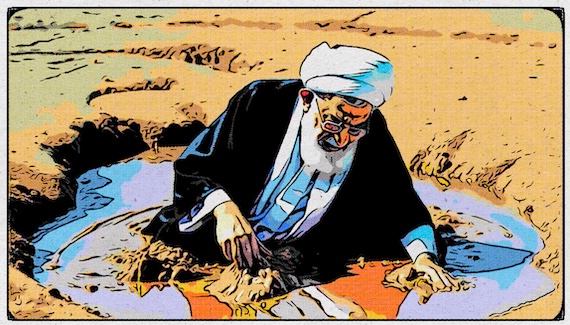By Imran Khalid | –
( Foreign Policy in Focus ) – The dramatic sequence of events that began on October 7, 2023, with Hamas’s strike in Israel, has cascaded through the Middle East, toppling regimes and reshaping the region’s fault lines. On the very day Israel and Hezbollah agreed to a ceasefire halting hostilities in Lebanon, the Syrian militant group Hayat Tahrir al-Sham (HTS) launched a bold offensive to capture Aleppo, marking the end of an era for Syria. Earlier this month, the reign of President Bashar al-Assad—a tenure synonymous with repression, conflict, and decay—crumbled under the weight of accumulated resistance.
Syria, long shackled by a Ba’athist dictatorship and scarred by 14 years of brutal civil war, now glimpses a fragile freedom. Yet, the challenges ahead are formidable: sectarian tensions and entrenched divisions could derail the nation’s rebirth. Meanwhile, the upheaval in Syria has laid bare the vulnerability of Tehran’s once formidable “axis of resistance.” For Ayatollah Ali Khamenei, the collapse of this network, painstakingly built to project Iranian influence, represents an existential political crisis. The fall of Assad’s regime signals not just a geopolitical shift but also a psychological blow to Iran’s ambitions.
The Middle East, a region perpetually in flux, faces yet another transformation, fraught with uncertainty but also infused with the hope of a new beginning. Hezbollah’s gamble in opening a second front against Israel during the Gaza conflict may go down as one of its gravest miscalculations. The Shia Lebanese movement, heavily supported by Iran, was emboldened to assist Hamas, but misread both the regional dynamics and Israel’s military prowess. By striking along the UN-demarcated Blue Line, Hezbollah stirred a hornet’s nest, and the consequences proved catastrophic.
After nearly a year of skirmishes that uprooted hundreds of thousands, Israel escalated its operations in September, delivering precision blows that decimated Hezbollah’s leadership. The group’s iconic leader, Hassan Nasrallah, was among those eliminated in a series of airstrikes that left Hezbollah’s command structure in tatters. On the ground, Israel’s forces drove Hezbollah militants away from the contested border zone, a tactical and symbolic victory for a nation accustomed to perpetual conflict.
By November, Tehran’s calculus shifted. Acknowledging the unsustainable losses, Iran urged its Lebanese ally to seek peace rather than risk further erosion of its capabilities. Reluctantly, Hezbollah acquiesced, agreeing to a ceasefire that handed Israel the upper hand. This episode highlights the limitations of proxy warfare in a region where alliances are tenuous and military missteps can unravel years of carefully constructed influence. For Hezbollah, the toll of this misadventure extends beyond the battlefield, leaving its future—and Tehran’s credibility—irreparably shaken.

“Mired,” Digital, Dream / Dreamland v3 / Clip2Comic
Iran’s reliance on Hezbollah as a cornerstone of its influence in Syria has long been a strategic necessity. In 2015, the Lebanese group, alongside Russian forces, proved pivotal in rescuing Bashar al-Assad’s regime from the brink of collapse. But the Middle East is a region defined by shifting alliances and resource exhaustion, and neither Iran nor Russia could muster the will—or the means—to defend Damascus.
Tehran, after all, was drained by its proxy war with Israel, and Moscow was deeply entangled in Ukraine. Their absence created a vacuum, which the HTS and the Syrian National Army were quick to exploit. Seizing on Assad’s weakened position, these groups launched an offensive on Aleppo, ostensibly to preempt a regime operation targeting their strongholds in northwest Syria. What unfolded revealed the fragility of Assad’s government. Rife with corruption and demoralization, Syria’s army offered scant resistance. Aleppo fell with startling ease, underscoring just how diminished Assad’s authority had become. Iran and Russia may have propped up Assad in the past, but their inability to save Assad signals a profound weakening of the axis that once anchored Syria’s survival.
Iran faces a sobering recalibration of its regional ambitions. Stripped of direct influence on Israel’s borders, it must rely on proxies in Iraq and its longstanding ties with the Houthi militia in Yemen to project power. Yet, a renewed focus on its nuclear ambitions could be fraught with peril, especially with Donald Trump’s imminent return to office. Trump’s previous strategy of extreme pressure left Tehran with little room to maneuver, and Supreme Leader Khamenei may tread cautiously this time.
Meanwhile, tensions have flared on the Syrian-Israeli frontier. For the first time since 1974, Israeli Defense Forces (IDF) entered the Syrian-controlled Golan Heights to repel an assault on a UN outpost near the Druze village of Khader. By Sunday, Israel had deployed additional troops to secure the buffer zone, aiming to contain Islamist rebel groups and prevent a flood of refugees. It is too early to envision a scenario where Abu Mohammed al-Jolani, the leader of HTS, brokers peace with Israel over the contested Golan Heights. Yet, as the Middle East repeatedly proves, the unimaginable has a way of becoming reality.


 © 2026 All Rights Reserved
© 2026 All Rights Reserved